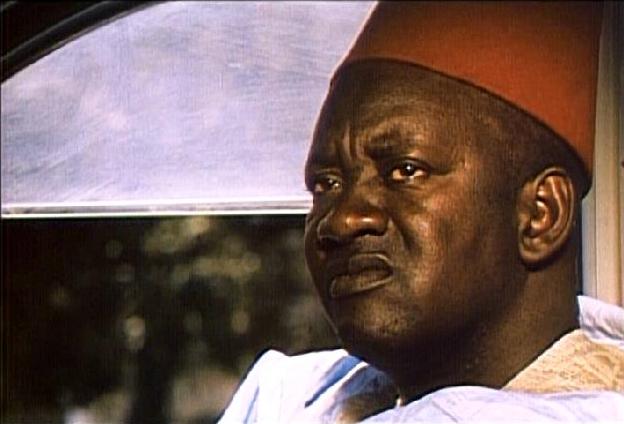Mandabi is clearly a movie for specialized tastes and is probably of more interest as an example of an emerging African film industry than as a film in its own right. The story of a man whose life is turned upside down by the arrival of a money order from his nephew in Paris is old hat — and was even in 1968. There are moments of interest — like the truth of the ramshackle life of this supposedly rich nephew, and the idea of the recently indepenent Senegal mired in its approximation of a bureaucracy learned from the French. But the film is choppy and inelegant. Director Ousmane Sembene shoots it all in a flat style that depersonalizes the characters and keeps them at a distance. Though it may be the transfer I watched, the film looks like it was blown up from 16mm. The images are often indistinct. The editing is ragged. And the whole film is crude — even amateurish. As an example of the formation of African cinema, I don’t doubt its importance, but I’m not sure it has a lot to offer otherwise.
Classic World Cinema by Courtyard Gallery will present Mandabi Friday, Dec. 5, at 8 p.m. at Phil Mechanic Studios, 109 Roberts St., River Arts District (upstairs in the Railroad Library). Info: 273-3332, www.ashevillecourtyard.com





Before you comment
The comments section is here to provide a platform for civil dialogue on the issues we face together as a local community. Xpress is committed to offering this platform for all voices, but when the tone of the discussion gets nasty or strays off topic, we believe many people choose not to participate. Xpress editors are determined to moderate comments to ensure a constructive interchange is maintained. All comments judged not to be in keeping with the spirit of civil discourse will be removed and repeat violators will be banned. See here for our terms of service. Thank you for being part of this effort to promote respectful discussion.